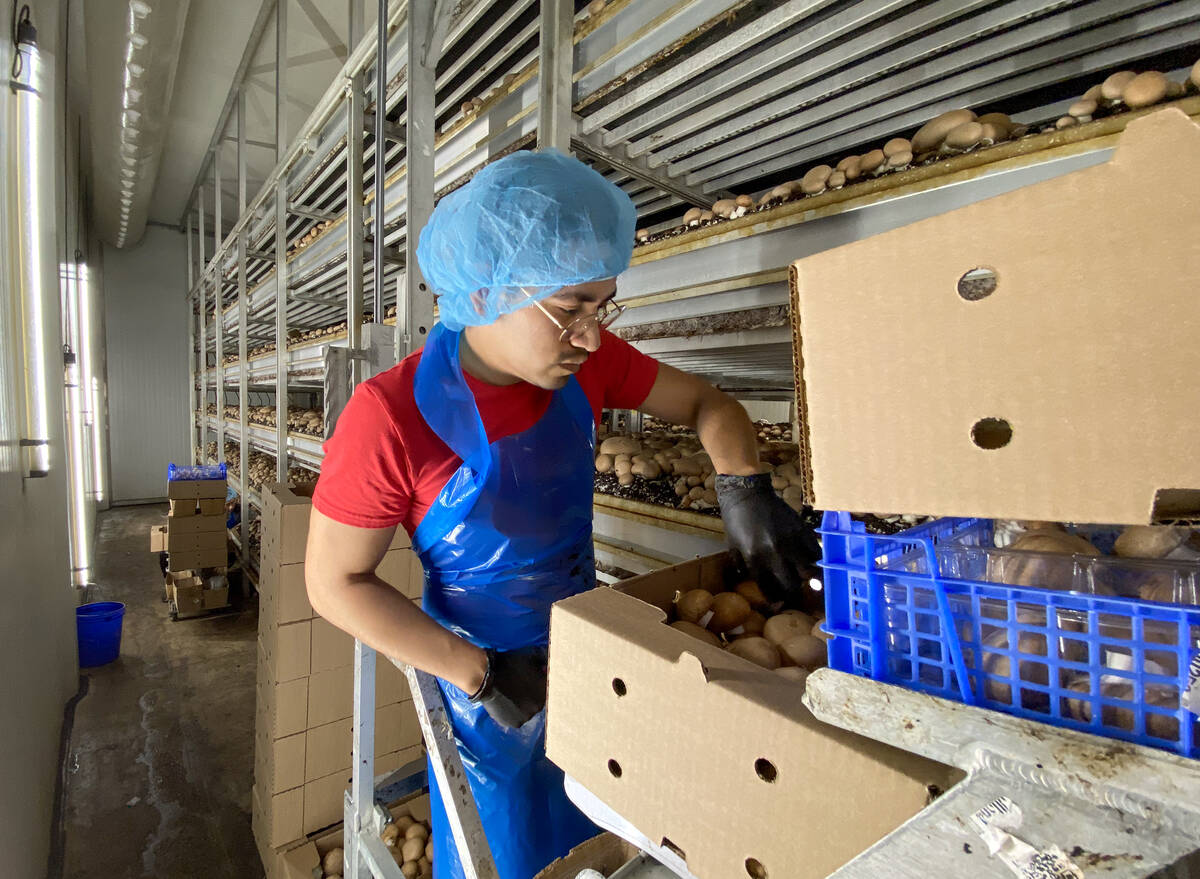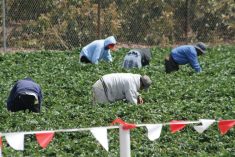Labour attraction and retention are challenging in agriculture, especially for seasonal vegetable and fruit operations.
Whether front-line or field workers, maintaining and managing seasonal employees through pandemic burnout, consumer aggression and high expectations led growers to try new tactics to keep staff.
Why it matters: Effective orientation of new employees and fostering emotional investment in farm and market-based businesses can increase seasonal workforce retention for fruit and vegetable growers.
Read Also

Ontario’s other economic engine: agriculture and food
Ontario Federation of Agriculture president, Drew Spoelstra, says Ontario’s agriculture and agri-food sector should be recognized for its stability and economic driving force.
Morris Gervais of Barrie Hill Farms said in 2020, anyone who showed up with a good strong pulse got hired. In 2021 the farm tried to incorporate more fun but, Gervais said, employees need to respect the level of work and commitment.
“We want it to be a fun experience for our employees, but when push comes to shove, we have to get the job done.”
Dealing with staff burnout was a tough slog in a retail environment with high expectations from the public, Gervais said, but never more so than through the pandemic.
“I don’t know how any of them could have avoided burnout the last couple of years,” he said. “We would back them up, rotate their hours, identify who wants to work more and who wants to work less and schedule accordingly.”
He said it was equally important to watch employees for burnout, suggest rest days and try to give everyone one weekend day off.
Providing staff with the tools and training to deal with customer situations and being realistic about job expectations and roles helped staff negotiate the daily challenges of customer service, said Gervais.
Alex Chesney of Thames River Melons in Innerkip used several strategies to motivate workers and encourage them to use creativity to build stronger relationships with customers.
“I always try to get to know our staff in terms of their skills and interests. It benefits us, and it also makes them have more fun while they’re working,” she said.
“We’ve had so many artistic people. That’s definitely a skill we try to draw on as much as possible.”
Staff have created murals of the produce, developed recipes and filmed fun videos.
“If you throw (a creative challenge) out there, you never know what skills people have and how they might apply them,” she said, adding she’s constantly surprised at the content created by her staff and the unique views they share with customers about the farm.
Chesney uses Sling for day-to-day management, which allows her to schedule shifts, provide employees with reminders and let them know who they’re working with.
“I didn’t think of that as being of much interest, but they really seem to like to know who they’ll be working with,” she said. “So that’s been a helpful tool. We found laying out the plan for the whole day has been really useful.”
Assigning one task at a time can result in slower completion of work, but the bigger picture helps employees see the value in their work, Chesney said.
Hollis English, of Alliston’s Murphy’s Farm Market, hires 12 to 30 students and community members to staff the family-run bakery and farm market.
The hiring process involves ensuring employees fit within their culture via group interviews and sometimes paid workplace trials to see how they fit with current staff.
“We got to see how people interacted when we did those paid opportunities,” she said. “It was worth paying someone for an hour or two of their time to find out if they were the right fit.”
In May, the staff have a first-day brunch, designed to provide a positive, memorable experience, especially for those just entering the workforce. It allows new and existing employees to meet and build team morale, said English. Without the revamped online onboarding process, she said it would be tough to squeeze in.
“We do a lot of it online through Kajabi,” she said. “We’ve basically created our own online course that we use strictly in-house for onboarding our staff.”
All hires go through the program’s modules that teach the required health and safety and business protocols, farm rules and regulations, and an in-depth family history of the market and farm so staff can answer clients’ questions.
The program collects the necessary staff forms in one spot, including the ‘getting to know you’ questionnaire, said English.
The simple questionnaire asks employees to share what beverages they like, how they want them, their favourite treats, etc., so English can motivate staff with personal incentives.
“If I’m getting a gift card for their birthday or little things like that, I’m going to get them one to a restaurant I know they like based on the form they filled out,” English said. “And it helps for bonding with the staff.”
Creating the online program allowed English to pinpoint gaps and overlaps in service and craft job descriptions, potential task additions and cross-training opportunities to ensure staff understand how their job could evolve throughout the season.
Flexibility with scheduling, especially for those with family commitments, provided access to a new labour pool. With four children under seven, English understands the need to drop off kids for 9:30 a.m. and be there to pick them up after school. Being open to modified schedules gave access to an additional labour demographic.
“I realize it doesn’t work in every situation, but it’s a hugely useful demographic of highly skilled and wonderful people that can work within those time frames,” she said.
Being approachable about hours and cross-training creates more opportunities for seasonal workers to stay on later and return the following year.
“If you already have them trained, if they’ve done all the initial HR stuff, I think it’s great to be able to keep those key people employed.”
English said recognizing employees’ critical role in the business and acknowledging their impact on the operation’s bigger picture builds pride and confidence in their abilities.
Those serve the business well.













